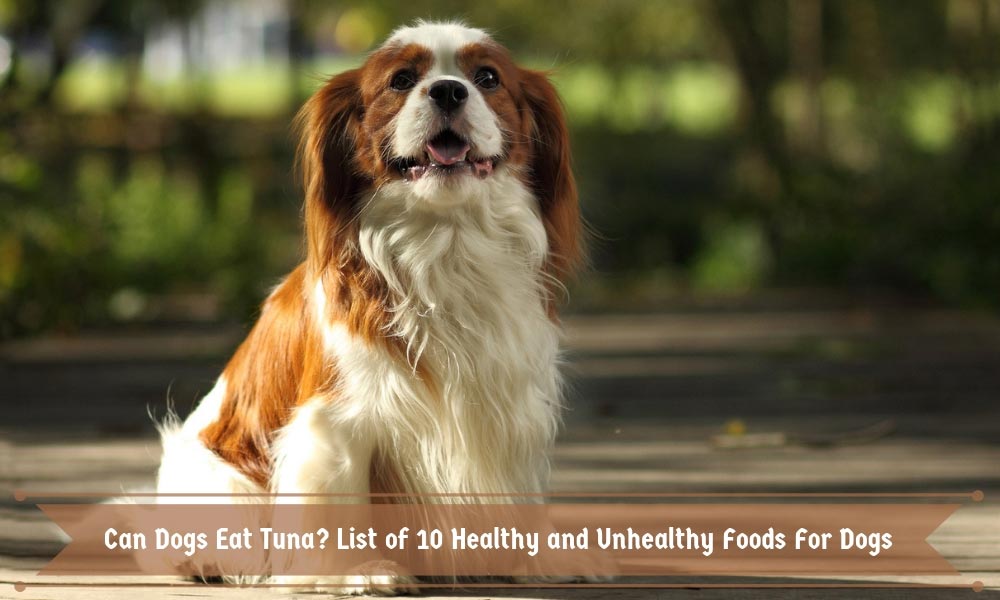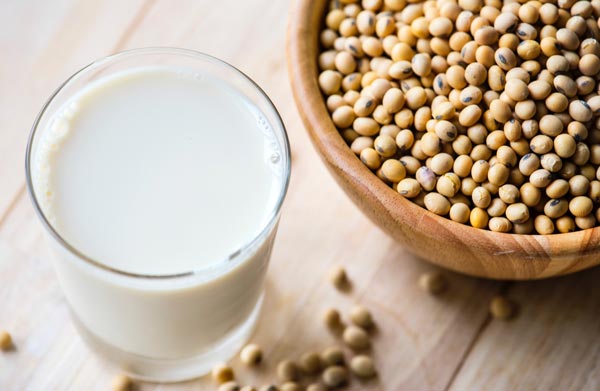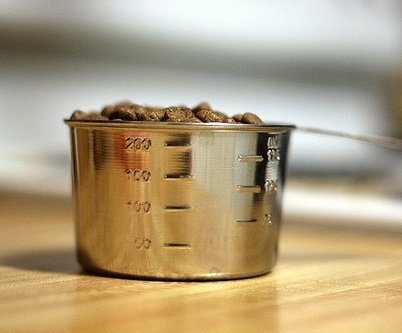
Compared to many kinds of pets, dogs have an extremely varied diet and can eat many different kinds of foods. Dog are naturally omnivorous and can healthily consume a bunch of meats, fruits, and veggies. But there are a few foods that are particularly good for them and some that are bad.
As far as bad food goes, most people are aware of the usual suspects like grapes and chocolate. But did you know that tomatoes and garlic can be unhealthy for your dog? In this article, we will cover some foods that are maybe best avoided for your dog what some suitable healthy replacements are.
As a general rule of thumb, It is never a good idea to give your dog processed food that is meant for humans. Human-specific processed foods tend to have additives, flavorings, and substitutes that may be harmful to dogs and not easily recognizable. So, when making and buying food for your dogs, stick to natural ingredients and stay away from artificial preservatives, colorings, and sweeteners.

Contents
15 Unhealthy Foods For Dogs (And 15 Healthy Alternatives)
1. White Flour
White flour is an extremely common ingredient in food as it is a cheap and easy source of carbohydrates. The problem with white flour is it is just that, carbs with all of its nutrients stripped away. Too much white flour can cause a sugar rush in your dog, keeping their appetite sustained, which can make them overeat. Overconsumption of white flour can also lead to heart problems and diabetes.
Healthy Alternative: Whole-Grain or Gran-Free
Your pets do not need any white flour and would be better served by whole grain options like brown rice, quinoa, or oats. Strictly speaking, dogs do not need any grains at all. In fact, many dog handlers recommend abstaining from grains for certain dogs as grains can be difficult to digest and cause excessive gassiness. For some dogs, it may be best to go the grain-free route.
2. “Meat Meal”

In general, meat is a good option for your pet. However, if you see a nameless “meat” or “meat meal” on product labels, stay away. Meat meal is made from the leftover parts of animals and may contain connective tissue, bone fragments, and hair; often expired and diseased tissue. Meat meal is usually heated to a temperature that destroys its nutritional quality as well. The result is nutritionally void empty protein that may carry harmful pathogens.
Healthy Alternative: Named Meats
Stick to meats that you can recognize, like chicken, beef, lamb, turkey, and fish. Try to find fresh cuts if possible, or at least check to make sure there are few preservatives added in.
3. Farmed Salmon
Fish is actually very healthy for dogs and is a good source of omega-3 fatty acids, chemicals necessary for brain and eye development. However, some kinds of fish can be harmful to dogs. Specifically, mass-produced farm raised fish tend to have higher quantities of heavy metals and other fat-soluble toxins in them, things that dogs are extremely sensitive to. Studies show that the level of fat-soluble pollutants in farm-raised salmon is almost 10 times that of wild caught salmon.
Healthy Alternative: Wild-Caught Salmon
Instead of farm-raised salmon, look for sustainably caught wild salmon. Wild salmon meat has much lower levels of toxins and tends to be better quality meat.
4. Soy

Soy is a controversial ingredient in human and dog foods. While soy has been shown to be perfectly fine for human consumption, it is less clear what benefits soy has for dogs. Soy is a plant-based protein, and dog metabolisms are not made to process plant-based proteins. For dogs, a soy-based diet may end up being largely empty calories as that protein does not get adequately absorbed. Soy also has a tendency to cause bloating and excessive gas and is a relatively common allergen in pets.
Healthy Alternative: Skip the soy, stick to meats
The best protein option for your dog is natural meats. Eggs and named meats have all the necessary proteins and amino acids for dogs in a convenient bio-available format.
5. Vegetable Oil

Vegetable oils at first may seem like a good option for pets. After all, they have lots of unsaturated fats, things your pet needs, right? The reality is that most vegetable oils are cheap blends of corn and soybean oils. Vegetable oils also have high levels of omega-6 fatty acids, which are known as inflammatory agents. These can exacerbate arthritis, hip problems, and other medical conditions.
Healthy Alternative: Descript Fats
When it comes to fats, stick to stuff you know. Omega-3 fatty acids in fish, olive oil, and flaxseed oil are all good alternatives. Better fats to keep an eye out for are chicken and pork fat. Avoid tallow and lard as they are very cheap low-quality fats.
6. BHA/BHT
BHA and BHT are two common chemical preservatives used in human and pet foods. BHA and BHT are banned in a handful of countries but are approved for use in small doses in Canada, the US, and Europe. BHA and BHT are commonly found in dry cereals, butter, beer, margarine, and several other processed food products.
Healthy Alternatives: Natural preservatives or canned foods
Vitamin C, vitamin E, and rosemary are all natural preservatives that are healthy for dogs. They are not as effective for long term storage, but they are a safer choice in general. Alternatively, you can avoid preservatives completely by buying canned foods. Canned foods eliminate the need for chemical preservation and last for a very long time.
7. Sugar Substitutes

Sugar substitutes like xylitol, aspartame, and sorbitol, are known to be linked to medical complications in humans, and the case is no different in dogs. Aside from having little to no nutritional value, sugar substitutes cause blood sugar surges in dogs resulting in hyperglycemia. Chronic hyperglycemia can result in liver problems and even death. Xylitol, in particular, is extremely toxic to dogs.
Healthy Alternative: Skip it
Your dog does not need sugar substitutes, so it is best to avoid them entirely. Stick to natural sugars found in fresh fruits and vegetables. This also means you shouldn’t feed it any human treats with sugars like ice cream and cakes.
8. Corn
Corn is technically a whole-grain, so you might initially think it is a good choice for dog food ingredients. In actuality, corn is notoriously hard to digest, and many dogs have digestive sensitivities to corn. Corn is often added as a protein supplement to dog food, but it does not contain all of the essential amino acids that dogs need, and the protein in corn is not very bioavailable to dogs.
Healthy Alternative: Meat Proteins or Grain-Free
Better vegetable alternatives to corn include things rich in good carbohydrates, like sweet potatoes. As always, named meats are your best protein option for dogs.
9. Salts

Both dogs and humans need salts, but too much salt is harmful. High salt diets can raise blood pressure and increase the risk of stroke, stomach cancer, and cardiovascular disease. Salt also makes dogs dehydrated.
Healthy Alternative: Skip it
If you are feeding your dog a lot of natural named meats, then it should not need any extra salt for flavoring.
10. Gluten
Gluten is one of those ingredients that gets a lot of attention in the press, positive and negative. Many people choose to avoid gluten due to dietary sensitivity and efforts to lose weight. Dogs, on the other hand, need to avoid gluten for health reasons. Gluten, which is found in most natural grains, is not natural for dogs to consume and digest. While eating gluten won’t cause your dog any severe immediate problems, the best outcome for their health involves trying to stay away from gluten as much as possible.
Healthy Alternative: Go Grain-Free
The best way to avoid gluten is to feed your dog a grain-free diet. Vegetables like sweet potatoes are a good source of carbs for a grain free diet.
11. Nitrates and nitrites

Nitrates and nitrites are commonly found in packaged meat products like ham, sausage, bacon, hot dogs, and deli meats. Nitrates and nitrites are used as food preservatives to extend the shelf-life of packaged meat. While manageable in small doses, prepared meats increase the levels of nitrates and nitrites in the blood and can cause a rare blood disorder called methemoglobin in high doses. So,it is best to avoid the processed meat based treats and use them sparingly.
Healthy Alternative: Fresh cuts and canned meats
Fresh cut meats and canned meat products have little to no preservatives in them. Whenever possible, try to avoid nitrates and nitrates in purchased dog foods.
12. Avo cados
Avocados are a trendy food item and are touted as a superfood. For humans, avocados are nutritious and have an excellent blend of healthy fats and oils. Dogs, though, not so much. Avocados contain persin, a fungicidal toxin that can cause serious health problems in dogs. The exact lethal dosage in dogs is not known, so it is best to keep your dog clear of avocados and avocado-based foods.
Healthy Alternative: Bananas
Bananas are high in many nutrients and minerals like potassium, fiber, copper, and biotin. Bananas do have a high sugar content and so should not be eaten regularly, only as treats.
13. Cherries

Cherries are actually very dangerous for dogs as they contain trace amounts of cyanide. Cyanide prevents the body from transferring oxygen, which can lead to asphyxiation. Dilated pupils, shortness of breath, and red gums are signs of cherry poisoning in dogs.
Healthy Alternative: Blueberries
Blueberries are a different kind of sweet berry that is safe for dogs to eat. Blueberries are very high in antioxidants which soak up free radicals and prevent cellular damage. They also have plenty of phytochemicals and fiber, two things dogs need for healthy digestion.
14. Pea protein
Another kind of plant protein, peas are a good source of fiber and carbohydrates. They are relatively high in protein for a vegetable. The problem is that many dog food brands use pea protein as a filler for meat protein, and it is less nutritionally worthwhile. Pea protein is also not complete in amino acids like animal meat is. Peas make a good addition to a dog’s meal but shouldn’t be its primary source of protein.
Healthy Alternative: Skip it
While you do not need to avoid pea protein entirely, stay away from foods if they have a high pea protein per weight measure. You want the majority of proteins in your dog’s diet to be meat based.
15. Tomatoes

For humans, tomatoes are actually a very good source of vitamin C, potassium, and vitamin K. Despite this; they contain a chemical called solanine, which is toxic to dogs in high quantities. While a tomato everynow and then will not hurt your dog, it is best to stay away from them in the long term.
Healthy Alternative: Oranges
Oranges have very high levels of vitamin C and potassium. Dogs also greatly enjoy the sweet and tart taste of oranges, so they make a nice treat. Make sure they do not eat the skins though as that can cause digestion problems.
Best Natural Ingredient Dog Food Brands
Here are some of our choices of the best all-natural ingredient dog food brands.
- Best for puppies – Merrick Whole Earth Farms Grain Free Recipe
- Best for large dogs – Eagle Pack Natural Dog Food
- Best for small dogs – AvoDerm Natural Revolving Recipe
- Best budget dog food – Wellness Core Natural Grain-Free
- Best for old dogs – Canida Grain Free Pure for Seniors
Conclusions
Dogs are our best friends and deserve the utmost care. Part of taking good care of a dog is making sure it has a well-balanced diet full of healthy and nutritious ingredients. This guide will help you identify harmful ingredients to stay away from and what some suitable alternate options are. Your dog will appreciate a healthy diet that gives it plenty of energy and allows it to grow big and strong.
I grew up in a household that was filled with animals. I believe that my fate as a dog-loving person was sealed in early childhood since my parents owned several dogs of varying sizes and breeds. There was no choice but to take care of and learn about dog habits and the best animal care practices — otherwise, I’d be clueless about how to go about the creatures I was surrounded by day and night.
As a life-long puppy lover, I know a thing or two about dogs and how to go about caring for them in the best way possible. Although I’m not a professionally trained dog behaviorist, trainer, or veterinarian, all of my knowledge and experience with canines comes from a place of love and a deep-rooted passion for dogs and animals in general.
Seeing as dogs kept me company throughout every stage of my life, I decided to follow a different path in my academic life and obtained a Bachelor’s and Master’s degrees in Marketing Management and Digital Advertising, which ultimately allowed me to combine my professional training and personal experience by creating the ultimate dog lover’s resource website! Along with my husband, Dave, I run MySweetPuppy for like-minded dog lovers who want to have a single, clear, and reliable information source about anything and everything related to dogs and their well-being.



